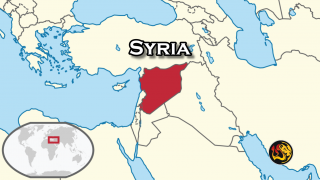
By Stefan J. Bos, Chief International Correspondent Worthy News
DAMASCUS (Worthy News) – Mohamed al-Bashir announced Tuesday that he has been appointed “caretaker prime minister” of the transitional Syrian government until March 1, 2025.
He made the announcement in televised remarks. Al-Bashir will form a government to manage the transition period and “avoid slipping into chaos.”
However, concerns remain about his ability to unite a nation deeply divided among numerous factions.
Al-Bashir, a trained engineer, ran the rebel-led Salvation Government set up in 2017 by Hayat Tahrir Al-Sham (HTS), an Islamist group that swept into Damascus, the capital, forcing then-President Bashar al-Assad to flee the country.
Before the 12-day lightning offensive, Al-Bashir’s administration was headquartered in Idlib to govern the northwestern Syrian city and other territories controlled by HTS.
While people in Damascus have been celebrating the rebels’ arrival, the ousted Assad had reportedly warned Christians they would face more persecution if Islamic rebels control Syria.
Yet before Al-Bashir officially became Syria’s interim prime minister, Sunni-led Islamist rebels who toppled Assad met elders in the former president’s Alawite hometown of Qardaha.
RELIGIOUS MEN
After meeting with dozens of religious men, elders, and others at the town hall in Qardaha, located in the mountains of Latakia province in the nation’s northwest, Alawite notables signed “a statement of support,” residents said.
The document they agreed upon emphasizes Syria’s religious and cultural diversity. It also calls for state police and services to be restored as quickly as possible under the new rulers, and it is agreed that any weapons held by Qardaha residents will be handed over.
“We affirm the unity of the Syrian Arab Republic’s territory and religious and cultural diversity and diversity of thought,” said the statement signed by about 30 of the town’s notables.
The rebels did not sign it.
People familiar with the talks said the delegation visiting them were members of HTS and the Free Syrian Army, Sunni groups that led the rebellion.
Assad said they “were terrorists” who would “massacre Alawites” if he fell, but the document pledged reconciliation.
Syrians from the Alawite religion, an offshoot of Shiite Islam, comprise about 10 percent of the country’s population and are centered in Latakia province, close to the Mediterranean Sea and the border with Turkey.
TEARFUL REUNIONS
Sunni Muslims are about 70 percent of the population, and there are substantial Kurds, Druz, and Christians, some of whom have expressed concern about their future.
Yet there were some hopeful signs as thousands of inmates, many of them political prisoners were freed from “President Bashar al-Assad’s pitiless detention system” after he was toppled on Sunday, reporters said.
Reporters witnessed sometimes tearful reunions with relatives who believed they had been executed years earlier.
However, families still scoured the filthy cells of Syria’s forbidding Sednaya prison on Monday for any sign of long-detained relatives after its gates were flung open by rebels.
By that time, however, hope for finding their missing loved ones began to fade.
It will now be up to Al-Bashir’s administration to avoid revenge attacks against those who supported Assad’s regime, with the world watching whether the nation moves from chaos to a sense of more stability.
Copyright 1999-2026 Worthy News. This article was originally published on Worthy News and was reproduced with permission.
Latest News from Worthy News
Saudi Arabia has launched the largest reconstruction initiative in Syria since U.S. sanctions were lifted, positioning the kingdom as a central driver of Syria’s postwar recovery.
Ukrainian President Volodymyr Zelenskyy said the United States has given Kyiv and Moscow another deadline to reach a peace agreement, proposing that the nearly four-year war should end by June, as Russia escalates air strikes against Ukraine’s energy infrastructure.
Israeli Prime Minister Benjamin Netanyahu is scheduled to meet Wednesday with President Donald Trump at the White House, as negotiations with Iran enter a decisive and potentially volatile phase. The meeting, set for 11:00 a.m. Washington time, will mark Netanyahu’s seventh face-to-face encounter with Trump since the U.S. president began his second term, underscoring the unusually close relationship between the two leaders.
With the deadline to fund the Department of Homeland Security only days away, Democrats have refused an offer from the White House to strike a compromise over Immigrations and Customs Enforcement changes.
President Donald Trump is weighing deploying a second aircraft carrier to the Middle East as the U.S. continues talks with Iran over its nuclear program.
Ahead of the 2026 midterm elections, Republicans in Congress are pushing forward multiple bills that would standardize election security requirements nationwide.
Kenya has condemned as “unacceptable” the recruitment of its citizens to fight for Russia in Ukraine, amid reports that several Kenyans have been killed or wounded on the battlefield as the war approaches its fourth anniversary.







